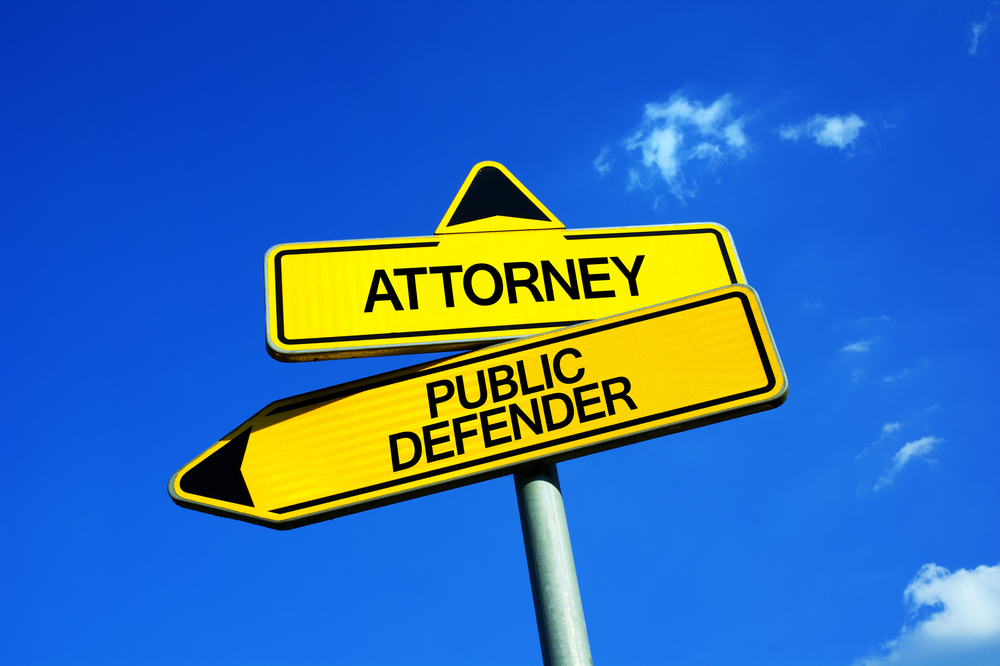 A public defender is a lawyer who works for the government in criminal defense or traffic defense. They are charged with representing criminal defendants who cannot afford to pay for a private attorney. Public defenders are paid by the government and are staff attorneys of the county for which they work, such as Cook, Lake, DuPage, Kane, McHenry or Will Counties. However, while they are paid by the local, state, or federal government, they legally represent the interests of the client to whom they’ve been assigned. If you truly can’t afford to hire an attorney, they may be able to represent you.
A public defender is a lawyer who works for the government in criminal defense or traffic defense. They are charged with representing criminal defendants who cannot afford to pay for a private attorney. Public defenders are paid by the government and are staff attorneys of the county for which they work, such as Cook, Lake, DuPage, Kane, McHenry or Will Counties. However, while they are paid by the local, state, or federal government, they legally represent the interests of the client to whom they’ve been assigned. If you truly can’t afford to hire an attorney, they may be able to represent you.
Illinois has a Public Defender Association. The goals of the association are to continue educating public defenders in the state and encourage an exchange of ideas by court-appointed counsel in all counties. Recently, the association has begun efforts to establish caseload standards for public defenders. This is to ensure defendants are adequately represented by attorneys who have enough time to understand the details of each case.
How Can I Get a Public Defender?
Under the Constitution of the United States, the state cannot generally prosecute a defendant who is charged with a crime that carries the possibility of imprisonment and cannot afford an attorney, unless the state provides them with a free attorney. A defendant cannot choose which particular public defender they want to employ though. Usually, the judge will appoint a public defender to represent an individual who cannot afford a private attorney.
Your first court appearance is called an arraignment. The purpose of this court appearance is to find out how the defendant wishes to plead: guilty or not guilty. If you cannot afford an attorney, notify the court. You will then fill out an Affidavit of Assets and Liabilities. This form will help the court determine whether you are financially capable of hiring a private lawyer.
The judge uses this information to determine whether a public defender can be appointed to your case. After your arrest, if you remain in custody, the court may appoint a public defender to represent you at your arraignment. If you have retained private counsel, then the public defender will not represent you. If you have a private attorney, you may not also receive a public defender.
Public Defenders Work on Specific Types of Cases
A public defenders’ job is to protect the legal rights of someone who has been charged with a crime but cannot afford an attorney. This can include a misdemeanor, felony, DUI, domestic violence, or a traffic offense. People who are being sued, have other civil matters or are experiencing certain immigration issues cannot use a public defender.
If you know that there has been a warrant issued for your arrest, you should contact your Chicago criminal defense attorney immediately. Your defense lawyer will help get your case on the court’s calendar. If you do not have an attorney, the clerk’s office at the court building can walk you through the process of getting your case scheduled.
However, there is no guarantee that while you’re waiting to appear in court, you won’t also be arrested. You can only make a request for a court-appointed attorney with a Judge in court.
Public Defenders Use Vertical or Horizontal Representation
When you are represented by a private attorney, you usually have the same attorney from the beginning of your case during the arraignment to the end at which time your case is either dropped, negotiated, or goes to trial. However, public defender offices do not always work this way.
In some instances, public defenders are assigned to a defendant’s case from beginning to end. This is called vertical representation. But in many cases, a defendant may have multiple public defenders who handle their cases from start to finish.
This may happen when the public defenders’ office has attorneys who specialize in different aspects of a case. For example, one public defender may handle the arraignment, another may negotiate with the prosecutor, and a third may take the case to trial. Or in some cases, the public defenders assigned may just be shifted around without any apparent reason. This is called horizontal or lateral representation.
This often results in the defendant feeling as if they do not have adequate lines of communication with their public defense attorney while the case moves throughout the process. In a good public defenders’ office, each lawyer will make clear notations in the file so the next attorney can quickly get up to speed on the progress of the case.
However, since the client load is often heavy and multiple public defenders may be handling a single case, details can fall through the cracks.
Call the Chicago Criminal Defense Lawyers at Mitchell S. Sexner & Associates LLC for Experienced Representation
Public defenders work hard but are often overwhelmed with their caseload. Although they try, it is difficult to give each case the attention needed to adequately represent your interests in court.
A conviction can affect your ability to get a loan, rent an apartment, get a job, or can affect personal relationships. Don’t rest your future on the shoulders of an overworked and under-resourced public defender’s office. Instead, call the experienced and compassionate attorneys at Mitchell S. Sexner & Associates LLC today. Schedule your free case evaluation by calling (312) 644-0444 or contacting us online.
